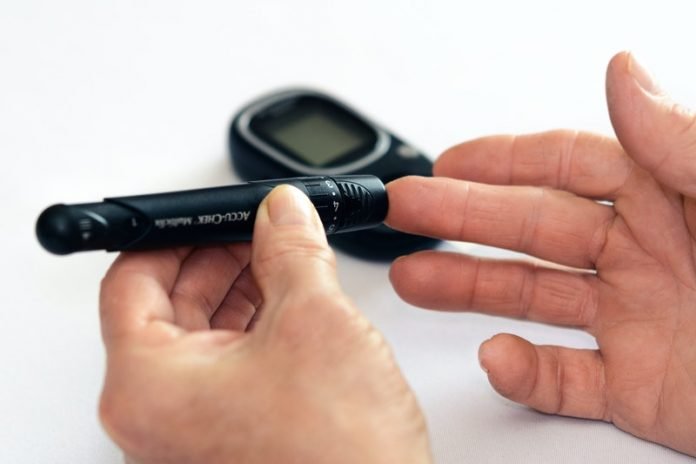
For years, scientists have been trying to solve a medical mystery: Why do people with type 1 or type 2 diabetes have an increased risk of developing some forms of cancer?
In a new study from City of Hope, researchers found that DNA sustains more damage and gets fixed less often when blood sugar levels are high compared to when blood sugar is at a normal, healthy level, thereby increasing one’s cancer risk.
It’s been known for a long time that people with diabetes have as much as a 2.5-fold increased risk for certain cancers. These cancers include ovarian, breast, kidney and others.
Scientists have suspected that the elevated cancer risk for diabetics arises from hormonal dysregulation. In people with type 2 diabetes, their insulin is not effectively carrying glucose into cells.
In the study, the team had a different idea. They wondered if the elevated blood glucose levels seen in diabetes could harm DNA, making the genome unstable, which could lead to cancer.
They looked for a specific type of damage in the form of chemically modified DNA bases, known as adducts, in tissue culture and rodent models of diabetes.
Indeed, they found a DNA adduct, called CEdG, that occurred more frequently in the diabetic models than in normal cells or mice. What’s more, high glucose levels interfered with the cells’ process for fixing it.
This suggests that exposure to high glucose levels leads to both DNA adducts and the suppression of their repair, which in combination could cause genome instability and cancer.
The team completed a clinical study that measured the levels of CEdG, as well as its counterpart in RNA (CEG), in people with type 2 diabetes.
As in mice, people with diabetes had significantly higher levels of both CEdG and CEG than people without the disease.
The team also identified two proteins that appear to be involved, which both show less activity in diabetes. One protein activates several genes involved in the repair process. “
They found that if they stabilize the protein in a high-glucose environment, they increase DNA repair and reduce DNA damage.
According to the team, several drugs that stimulate the protein already exist. The researchers plan to see if these drugs decrease cancer risk in diabetic animal models, and if so, they will test them in humans.
The team notes that metformin, a common diabetes medication that helps lower blood glucose levels, also stimulates DNA repair.
If you care about cancer, please read studies about these common food directly linked to cancer risk and findings of this stuff in your mouth may cause oral cancer.
For more information about cancer treatment and prevention, please see recent studies about the root cause of a deadly brain cancer and results showing that this anti-diarrhea drug can kill cancer.
The study was presented at the American Chemical Society (ACS) National Meeting & Exposition. One author of the study is John Termini, Ph.D.
Copyright © 2021 Knowridge Science Report. All rights reserved.



